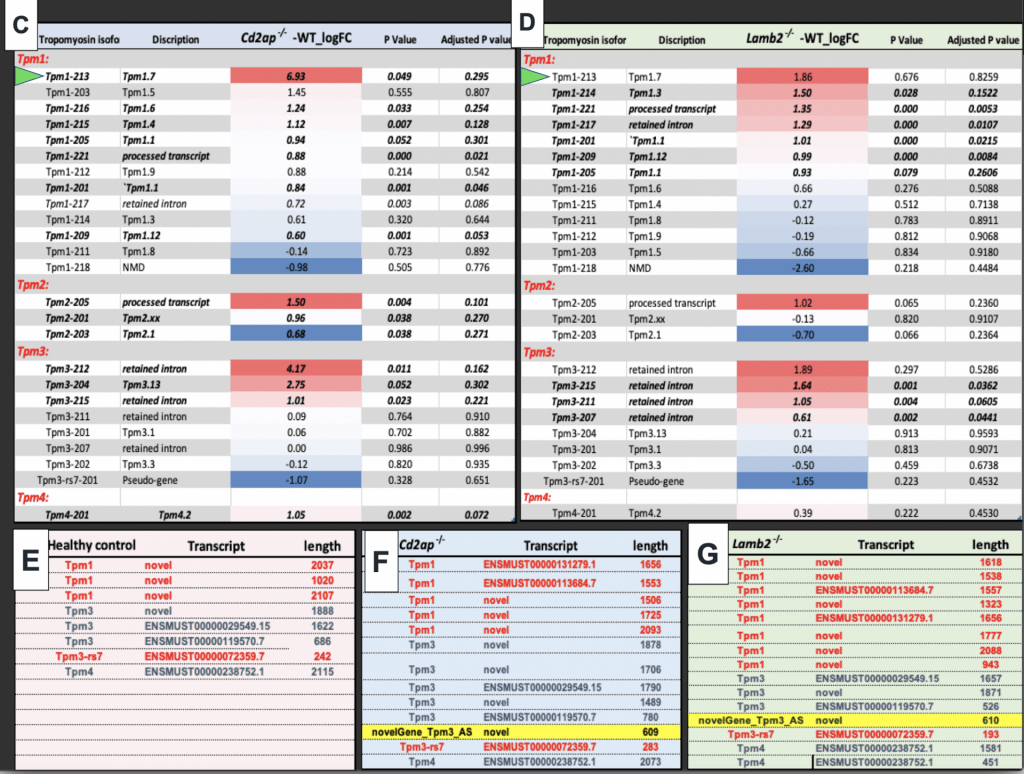Altered Tropomyosin Isoform Repertoire As A Regulator Of Podocyte Shape In Kidney Diseases.
Dr. Hani Suleiman

Glomerular diseases, including minimal change disease, focal segmental glomerulosclerosis, and diabetic nephropathy lead to kidney failure that requires lifelong dialysis. These diseases affect the podocytes, an endly differentiated cell that constitutes an important part of the kidney filtration barrier. As a sign of injury, podocyte dramatically changes their shape (foot process effacement) in an unknown mechanism.
Dr. Hani Suleiman’s project aimed to understand the cellular machinery required for the injured podocytes to change shape, a phenomenon that coincides with the loss of the kidney filtration barrier (i.e., foot process effacement). If the team can understand the molecular mechanism of such change, we will be able to interfere to reverse the podocyte changes, which potentially could slow down or stop the progression of the kidney glomerular pathology to the end-stage renal disease that requires dialysis.
The study reviewed the effect of newly discovered isoformson podocytes, including the cofilin-linked Tpm by using in vitro and invivo experiments. This grant used two different RNAseq platforms (i.e., Illumina and PacBio) to identify the tropomyosin isoforms. They studied the Tpm changes in isolated glomeruli taken from healthy mice as well as from four well-established podocyte injury models (i.e., Cd2apKO, Lamb2KO, Col4a3KO, and adriamycin nephropathy). Through collaboration with MGI, they used a mouse model that overexpresses this Tpm isoform (Tpm1.7). Dr. Suleiman studied the kidney phenotype of this mouse in the baseline and after induced kidney injury. In order to study the biological significance of the novel Tpm transcript that was identified by Pacific Bioscience platform and allowed them to synthesize and overexpress these transcriptin podocytes and isolated glomeruli to study its effect on the cell’s morphology.
Overall, the Illumina analysis pointed to several TPM isoforms to be important in the injury models including the TPM1.7 isoform. Excitingly, PacBio analysis identified a novel transcript that is expressed only in injured glomeruli but not in the wildtype control. Dr. Suleiman’s team is in the process of verifying the significance of these findings.
